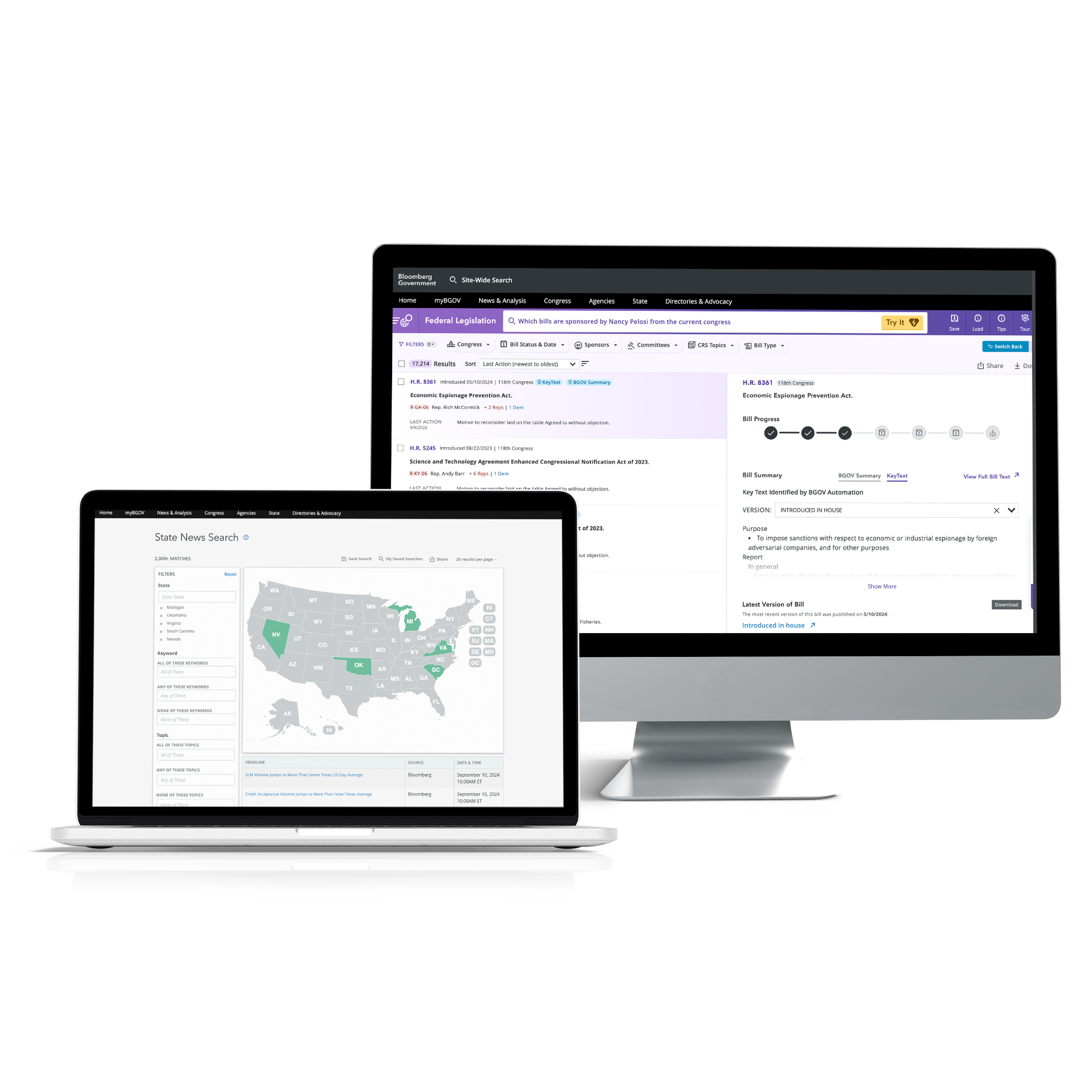Prepare for Policy Change
The strategic government affairs platform you need to achieve policy objectives in a new political era
Trending topics
Designed to sharpen any team
Bloomberg Government is the all-in-one public affairs platform for your organization’s needs, whether you’re part of a lobbying firm, corporation, government, association, or nonprofit.
Insights
Loading...
Request a demo
Bloomberg Government gives professionals like you everything you need to understand, respond to, and shape policy and spending priorities with confidence.
Complete the form and a representative will contact you to schedule a demo. The demo will provide an overview of our latest features and an inside look into our product.
All fields with an asterisk (*) are required.
Already a customer? Get in touch with the support team.
